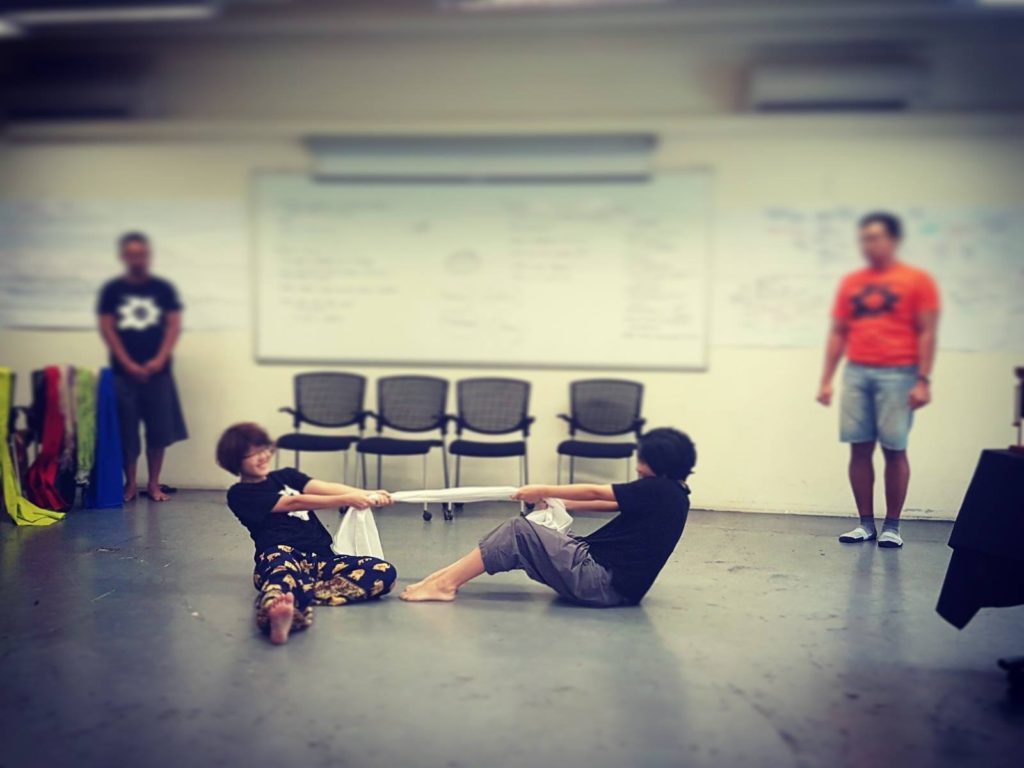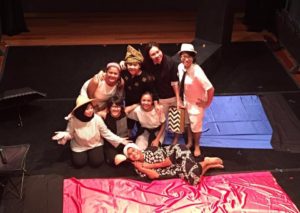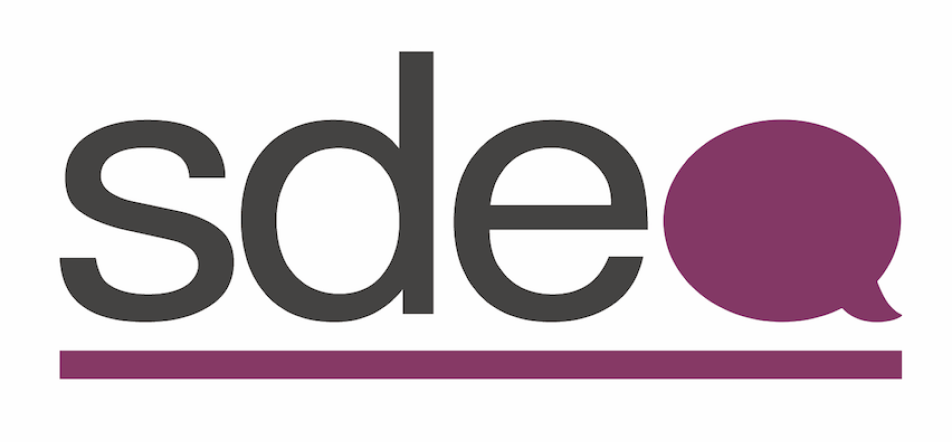SDEA Spotlight: Tan Yin Wei
by SDEA

SDEA Spotlight is a series of short interviews with SDEA members that peel back the curtain behind their practice, their beliefs about arts and drama education and their influences.
Yin Wei has been an SDEA member since 2013. She is still exploring theatre and how it benefits marginalised communities. She is at the beginning of her journey in using applied theatre for the common good.
1. What are you working on at the moment?
I just ended a four day theatre training with Tapestry Playback Theatre. At the same time, I am currently involved in this project with Temasek Polytechnic’s ArCH interest group for the Muhammadiyah Boys Home. We are currently assisting Muhammadiyah on a project for resident’s day which will take place in mid January. It’s a follow up from the playback show we did with them which served as a platform for the boys to share their hopes and dreams in a safe space without being judged. The whole atmosphere was a light-hearted one, and it bonded both the actors and the boys together through the magic of playback theatre.
2. What’s the direction of your work? Has it changed over the years?
At first, I was very interested in avantgarde theatre and I had always dreamed of studying performance studies overseas. I was into the postmodern theatre movement. After a few years of teaching, I realised that my interest in theatre has changed. What I would really like to do is to use theatre to serve the community and I’m currently reading up on playback theatre as a point of interest.
I love that playback theatre instils a sense of bonding within a community. At the same time, it is a place for unheard voices to express themselves. Playback can be used as a form of therapy, building a community and it is also a way of letting marginalised groups know they aren’t alone in whatever situation that they are facing. I’m just exploring it for now because I’m still very new to it.

3. What is a dream project that you hope to do?
My dream project would be to work with at risk youths. Theatre is a form of empowering the youth especially when they are being seen in a negative light whether it’s by parents, people around them or by their own teachers. I wish to change their perception of it.
4. What made you choose to be a drama educator?
Drama has transformed me from a very shy and reserved child to the confident and dynamic drama educator that I am today. I didn't have a lot of self-confidence when I was younger but my experience in the drama club when I was in Secondary school helped me be more comfortable in my own skin. It changed me from someone who was afraid to talk in front of the public to someone who is expressive and is able to communicate to an audience. In a way, I would like to ‘pay it forward’ by allowing my students to reap the same benefits of drama as a transformative tool.
 5. How do you keep your work fresh?
5. How do you keep your work fresh?
I believe in life-long learning. It’s always important to upgrade myself, and I would gladly sign up for any available drama course, workshop or training opportunity that comes my way. The drama landscape is always changing and I believe in the importance of every drama practitioner or educator to keep on learning and pursuing fresh knowledge along the way.
Through all the training that I received, I discovered that it’s okay to make mistakes. In my opinion, the best thing about attending drama workshops and training sessions is that there is always a safe space to learn and grow together without being judged and I think that's extremely important.
6. What do you think makes a perfect drama educator?
Most importantly, your heart must be in the right place. You don't have to be the most charismatic person, or the best actor. You must have the willingness to serve, a willingness to accept, and more importantly a sense of inclusiveness.
7. In one word, sum up your drama education journey.
Enlightening.
 8. Why is drama important? Why should it be taught in schools?
8. Why is drama important? Why should it be taught in schools?
Drama is important because there needs to be a space for children to play and explore the world around them. To help them keep an open mind because I think what is lacking is a sandbox for students to develop themselves cognitively, creatively and socially. This has to be developed further in schools.
In a lot of schools, I feel that the core subjects are overly emphasized. Drama seems to be a marginalized subject and it’s not used to its best potential. Drama is able to teach skills, how do you communicate with people, how you problem solve a real life context or different aspects of life which cannot be taught in core subjects. For example, last year, I did a mini process drama with my Sec 2 students about the performance of Pandaland by Makhampom Theatre. As an assessment piece, they came up with a performance and story about how a migrant worker overcame her challenges to adapt to life in Singapore. Social issues have to be experienced rather than taught or read up on, and only drama can do so.
9. Who was the drama educator that has the most impact on you?
It’s really hard to choose as every single drama educator that I have encountered along the way has taught me valuable things so it is very, very hard to pick one. The common thread between all of them is being passionate about their work. Every single one of them who have crossed my path, whether it is my lecturers or fellow teachers around me, they are really, really passionate about what they do and they are able to use their passion to influence the people around them like me.
 10. What is your most memorable moment in the classroom/on stage?
10. What is your most memorable moment in the classroom/on stage?
The most memorable moment would be when I was directing this piece for Ten In a Bag in 2014 where I had 15 students and 2 NIE trainees with me. The most significant memory I had of the event was seeing both my students and trainees grow from when we first started devising the piece all the way till performance day. As the piece progressed, I noticed that the students took charge of the whole play: they started running rehearsals on their own, gave each other feedback and encouraged one another. The next year, quite a number of them were involved in SYF and I realised they were using the skills they learnt through ten in a bag rehearsals to soar to greater heights.
11. Share a drama activity that you love to do.
One of my drama club kids taught the class how to play ‘Bang!’.
- Everyone will be standing in a circle.
- One person in the middle and he or she will shoot one random person and say bang.
- The chosen person must duck and the other two person on his/her side must shoot each other in a standoff.
- Whoever gets shot first or doesn't duck in time is out of the game.
I like that game because it bonds the class and everyone is always on the lookout for each other. It’s encouraging to see students taking the lead by volunteering to be the person in the middle. Furthermore, this game teaches students the skills of being aware of their surroundings and their fellow actors in an ensemble.
 12. What are you hopes for drama education in future?
12. What are you hopes for drama education in future?
I hope to see drama being a bigger part of the school curriculum, and more schools taking the leap to start up a drama program. When I spoke to people around me, whether during the drama workshops or during SDEA Theatre Arts Conferences, they told me that their school doesn’t offer Drama due to limited manpower and resources despite having a desire to offer the subject. Drama is about lifelong learning and learning valuable life skills along the way, being able to be in the moment, working with different people and accepting differences among them. It’s about being able to put ourselves in another person’s shoes; and to experience and understand their point of view.



